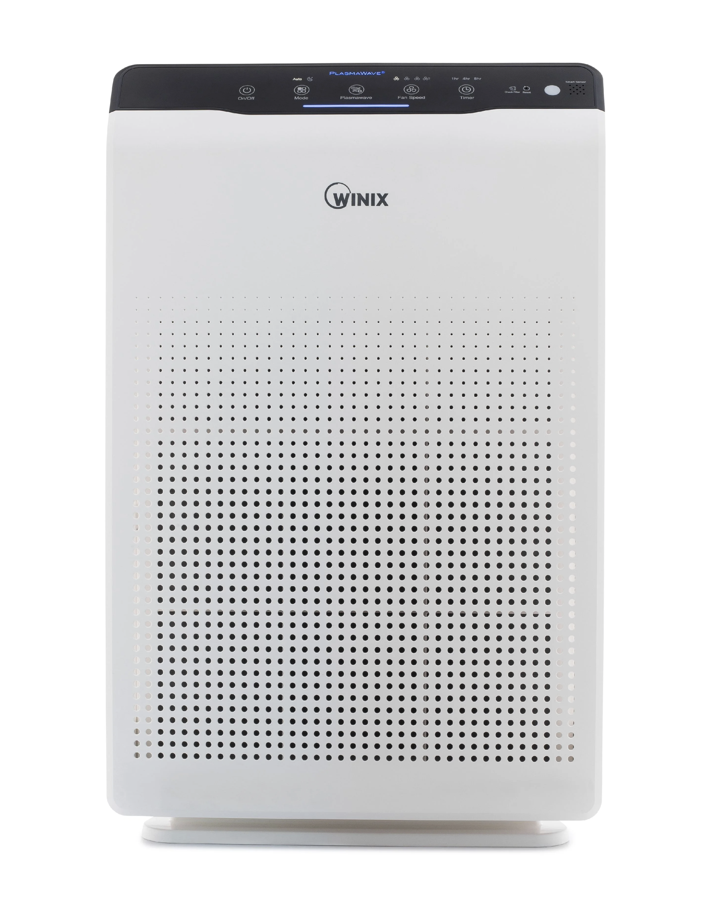Winix Lawsuit Alleges Air Purifiers Fall Short of Advertised HEPA Protection Standards
Yant v. Winix Global LLC et al.
Filed: October 21, 2025 ◆§ 1:25cv12851
A class action lawsuit alleges that the filters in Winix air purifiers do not meet HEPA standards as advertised.
Illinois
A proposed class action lawsuit claims that Winix air purifiers are not equipped with genuine High Efficiency Particulate Air (HEPA) filters as advertised.
Want to stay in the loop on class action lawsuits that matter to you? Sign up for ClassAction.org’s free weekly newsletter.
The 24-page false advertising lawsuit states that Winix has reaped “gargantuan profits” from the expanding air purifier market, particularly in light of the COVID-19 pandemic and massive wildfires throughout the United States. Though Winix says that its air purifiers come with legitimate HEPA filters, the class action lawsuit claims that testing done by the plaintiff’s counsel has revealed that the filters in the Winix devices at issue fall short of providing true HEPA air-filtering performance.
“To be called a HEPA filter, the filter must capture at least 99.97% of dust, pollen, mold, bacteria, and any airborne particles with a sizes [sic] ranging from 0.1 to 0.3 microns,” the suit explains. “According to the Centers for Disease Control and Prevention (CDC), HEPA filters ‘are the most efficient filters on the market for trapping particles that people exhale when breathing, talking, singing, coughing, and sneezing.’”
According to the complaint, Winix’s misrepresentations concerning its purported HEPA air filters have allowed the company to overcharge consumers for a product whose value is substantially lower than they were led to believe.
“Had Plaintiff and all other similarly situated consumers known that – contrary to Defendant’s knowing representations – the Products did not have HEPA filters, they would have paid less for the Products or not purchased them at all,” the case reads.
Many health agencies, like the CDC, have confirmed the effectiveness of HEPA air filters against viruses, including SARS-CoV-2, the suit mentions. Accordingly, the phrase “true HEPA” is present and well-known in the air purifier market, as it “carries weight” and “is a signal of quality to consumers,” the case states.
Of the 11 Winix air purifiers at issue in the lawsuit, 10—the 6300, P300, 5300, 5500, 5300-2, 6300-2, AM90, C909, 9800 and C535 models—use the same, interchangeable “HEPA” filters, the suit shares. One model, the C545, has a unique “HEPA” filter but is still subject to the same false advertising, the lawsuit alleges.
The plaintiff, an Illinois resident, purchased two premium Winix air purifiers from Costco in July 2024 for $259.98 each. Upon filing the complaint, the plaintiff’s counsel submitted several Winix products to a reputable independent laboratory for testing. The testing was conducted according to both European and American standards, which call for at least 99.95 percent and 99.97 percent filtration efficiency, respectively, as the baseline level for a HEPA filter, the filing says.
Under European testing standards, only one Winix filter achieved 93.48 percent filtration efficiency, well below the base standards, and under American testing standards, two separate Winix filters received a 99.603 percent and 98.87 percent filtration efficiency, the complaint relays.
“Being able to make a 99.97% ‘HEPA-filtration’ claim is thus a huge boon for manufacturers, and they know it,” the filing reads, adding that the HEPA standard claim signals to consumers that the product they’re buying is high quality.
The lawsuit notes that some Winix models were the only air purifiers sold at Costco stores throughout the pandemic, which generated hundreds of millions in sales.
The Winix class action lawsuit looks to cover anyone nationwide who purchased any of the Winix air purifier models listed on this page, or a replacement filter, during the applicable statute of limitations period.
Check out ClassAction.org’s lawsuit list for the latest open class actions.
Video Game Addiction Lawsuits
If your child suffers from video game addiction — including Fortnite addiction or Roblox addiction — you may be able to take legal action. Gamers 18 to 22 may also qualify.
Learn more:Video Game Addiction Lawsuit
Depo-Provera Lawsuits
Anyone who received Depo-Provera or Depo-Provera SubQ injections and has been diagnosed with meningioma, a type of brain tumor, may be able to take legal action.
Read more: Depo-Provera Lawsuit
How Do I Join a Class Action Lawsuit?
Did you know there's usually nothing you need to do to join, sign up for, or add your name to new class action lawsuits when they're initially filed?
Read more here: How Do I Join a Class Action Lawsuit?
Stay Current
Sign Up For
Our Newsletter
New cases and investigations, settlement deadlines, and news straight to your inbox.
Before commenting, please review our comment policy.